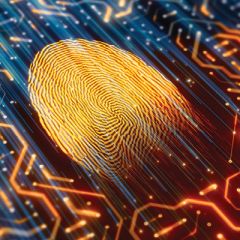Every personal injury lawyer has handled a motor-vehicle case. When photographs exist showing damage (or the lack thereof) to the vehicles involved in a collision, the parties will invariably try to admit the photos into evidence to support their theory of the case. If the photos show substantial damage, the plaintiff will seek to admit them to argue that the impact between the vehicles was significant, and that the force of the impact caused more serious injuries. Conversely, if the photos show little or no damage, the defendant will seek to admit the photos to suggest that the impact was minimal, and that the plaintiff was therefore not likely injured to the extent claimed. But what does all this mean now, in light of Peach v. McGovern, in which the Illinois Supreme Court recently held that in personal injury cases, expert testimony is not required to admit postaccident photographs of vehicles involved in a collision? In his February 2020 Illinois Bar Journal article, “A Picture is Worth a Thousand Words,” Arlo Walsman examines this development in caselaw.
Illinois Bar Journal
-
February 18, 2020 | Practice News

-
February 10, 2020 | Practice News

Conflicting federal and state laws pose many interesting legal questions for Illinois and other states that have legalized recreational cannabis. In his February 2020 Illinois Bar Journal article, “Major Buzzkill,” Joe Schomberg examines one often-overlooked issue: the availability of the U.S. Bankruptcy Code to businesses engaged in, or adjacent to, the bourgeoning legalized cannabis industry. Schomberg’s article received first place in the Illinois Bar Journal’s 2020 Lincoln Award Legal Writing Contest.
-
February 3, 2020 | Practice News

Hanging out one’s shingle today requires leaving no stone left unturned and an open mind. Among the many important variables to consider are new billing models; how to brand, market, and develop one’s professional “voice”; and how to create a productive office space. Last December, several of the ISBA’s younger entrepreneurial members participated in a CLE event presented by the Standing Committee on Racial and Ethnic Minorities and shared what they learned as they set out on their own. The Illinois Bar Journal caught up with some of the presenters and recapped their wisdom in the IBJ’s February 2020 cover story, “Setting up Shop.”
-
January 27, 2020 | Practice News

Although Illinois caselaw appears to suggest there is no duty to defend an insured (including an additional insured) before a suit, an insurer has a good-faith duty to its insured to respond to a demand made before suit and will often rely on two “black letter” rules to determine their responsibility. One rule is that they have no obligation to pay defense costs incurred before the insured tenders the claim to the insurer; the other rule is that the insurer owes no duties to the insured until the insured is sued. In his January 2020 Illinois Bar Journal article, “Tender-Hearted Insurers,” Scott O. Reed explains that while both rules are a rough approximation of the limits Illinois courts have placed on a liability insurer’s early-stage duties in a claim, caselaw contains exceptions and qualifications to those rules. Reed suggests that knowing the contours of these guides to an insurer’s early-stage duties will allow counsel for insureds and insurers to make informed recommendations to their respective clients about how to resolve conflicts over early-stage costs and settlements.
-
January 21, 2020 | Practice News

The question facing Illinois courts interpreting the state’s Biometric Information Privacy Act (BIPA) has been how best to interpret the meaning of “aggrieved.” Was an individual aggrieved if the defendant violated the statute or did the individual need to have sustained “some actual injury or harm, apart from the statutory violation itself, in order to sue under the Act”? Illinois appellate courts had reached conflicting decisions on this question, but on Jan. 25, 2019, the Illinois Supreme Court resolved this split and held, in Rosenbach v. Six Flags Entertainment Corp., that a person is aggrieved in the legal sense “when a legal right is invaded by the act complained of ….” In his January 2019 Illinois Bar Journal article, “Still a Wild Ride,” Charles N. Insler, a partner in the St. Louis office of HeplerBroom LLC, where he concentrates on complex commercial litigation matters, follows BIPA litigation developments after Rosenbach.
-
January 13, 2020 | Practice News

Gino DiVito, author of the ISBA’s “The Illinois Rules of Evidence: A Color-Coded Guide,” was recently surprised when he uncovered more than three dozen differences between the Illinois and Federal Rules of Evidence. Some differences are major, some are minor. ”But all differences matter,” DiVito says. “Anyone serious about evidence—including all judges and most attorneys—must know the differences.” Fortunately, in the January 2020 issue of the Illinois Bar Journal, DiVito provides a succinct guide of all the differences between the IRE and FRE in his article, “The Surprising Number of Differences Between the Federal and Illinois Rules of Evidence.” DiVito writes, “I’m not aware of any freestanding guide on the differences between the Federal Rules of Evidence and the Illinois Rules of Evidence. Until now.”
-
January 8, 2020 |
Practice News
The Illinois State Bar Association is inviting members to submit articles for publication in the Illinois Bar Journal (IBJ), our award-winning monthly publication that is sent to 28,000 attorneys throughout the state.
When you become an author for the IBJ, you not only establish yourself as an authoritative subject matter expert, but you can also claim CLE credit for your work.
-
January 6, 2020 | Practice News

As of Jan. 1, Illinois became the 11th state to legalize recreational cannabis. Many regulations remain to be written and much caselaw no doubt will follow, ensuring that attorneys in such areas as criminal and employment law will have plentiful opportunities to advise clients on cannabis-related matters in the months and years ahead. The Illinois Bar Journal's January 2020 issue surveys several hot cannabis topics, such as the state of available drug tests, how to define under the influence, employment law, and cannabis-related expungement cases now working their way through the court system.
-
December 17, 2019 |
ISBA News
Joe Schomberg, an associate at the Chicago office of Sidley Austin LLP, is winner of first place and $2,000 in the ISBA’s 2020 Lincoln Award Legal Writing Contest. His article, “Major Buzzkill: The Relationship (or Lack Thereof) Between State Legalized Cannabis and the Bankruptcy Code,” will appear in the February issue of the Illinois Bar Journal.
-
December 16, 2019 | Practice News

In 2016, the Illinois Supreme Court held that unconstitutionally obtained gun convictions could be used for charging and enhancement purposes unless the defendant vacated the conviction. Two years later, the court admitted it got it wrong. A rule articulated in a criminal case rippled out into a termination-of-parental rights proceeding and culminated in a call to arms. In his December 2019 Illinois Bar Journal article, “The Illinois Supreme Court’s About Face in In re N.G.,” Benjamin Lawson shows how In re N.G. challenges us as practitioners to recognize when a client’s conviction is unconstitutionally obtained and to do something about it.

